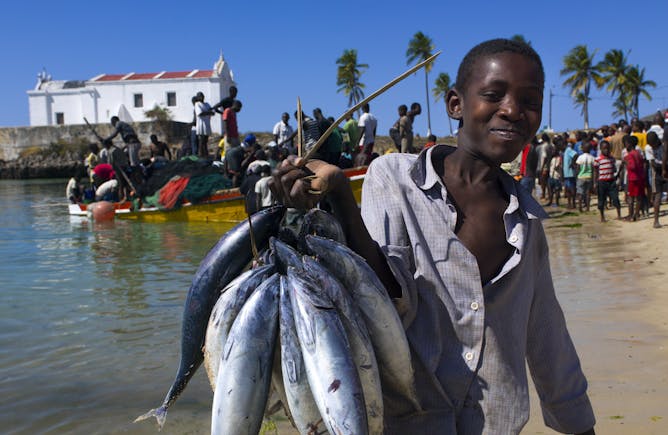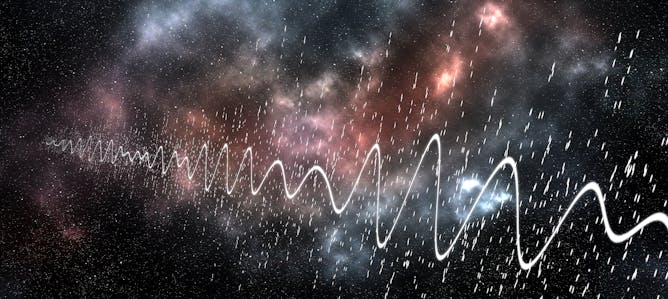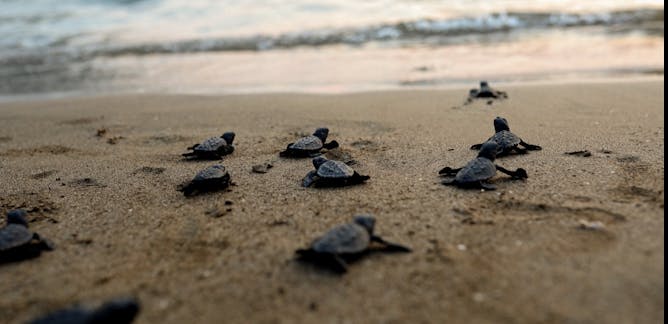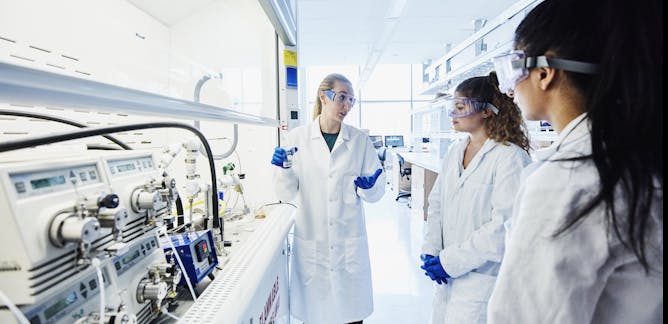|
|
|
|
A story this week on using the ocean to capture large amounts of carbon dioxide reflects again how any discussion of technical solutions to lower emissions is deeply tied to social questions. Climate researchers Sonja Klinsky of Arizona State University and Terre Satterfield of the University of British Columbia examine the various techniques that fit under the rubric of ocean carbon dioxide removal. These can be, for example, stimulating growth of phytoplankton to absorb CO2 or pumping liquid CO2 into formations under the seabed that can eventually solidify as carbonate rock. Certainly, the planet needs all viable methods to cut greenhouse gas levels, but the authors warn of inevitable social and ethical complications. They conclude carbon dioxide removal could be useful but is not a silver bullet, “especially since there isn’t an effective global system for making decisions about the ocean.”
If you’ve taken any interest in the search for extraterrestrial life, you’ve probably run across images of telescopes in the desert seeking signals from an alien civilization. Two Penn State astronomers involved in the search for extraterrestrial intelligence explain what those telescopes are actually doing and the many forms of “technosignatures” researchers like them look for, including extra heat coming from a star system or even pollution. “Searching for signs of distant, advanced civilizations is a much more nuanced and difficult task than it might seem,” they write.
Over the past 20 years, researchers have used Henry David Thoreau’s 19th-century observations on flowering, the emergence of leaves and spring ice melt at Walden Pond or in Concord, Massachusetts, to see how the environment has changed, largely in response to climate change. Other times researchers have used museum specimens or bird and butterfly club reports to make comparisons with the present day. But when are these types of archival material valid for use in science? A team of researchers provides a framework for evaluating these precious assets from the past for rigorous scientific work.
Also in this week’s science news:
If there’s a subject you’d like our team of science editors to investigate, please reply to this email.
|

|
Martin La Monica
Director of Editorial Projects and Newsletters
|
|

Humans could sink more carbon in the ocean to fight climate change, but should we?
Eric Lafforgue/Art in All of Us/Corbis via Getty Images
Sonja Klinsky, Arizona State University; Terre Satterfield, University of British Columbia
From planting mangroves to dumping minerals in the ocean, there are lots of ideas for ocean carbon dioxide removal – and even more questions.
|

Astronomers have been looking for radio waves sent by a distant civilization for more than 60 years.
Rytis Bernotas/iStock via Getty Images
Macy Huston, Penn State; Jason Wright, Penn State
The technology of an advanced alien civilization is likely to produce many signs that could be detected across the vastness of space. Two astronomers explain the search for technosignatures.
|

Scientists have used author Henry David Thoreau’s notes to inform studies of climate change in eastern Massachusetts.
Tom Stohlman/Flickr
Tara K. Miller, Boston University; Abe Miller-Rushing, National Park Service; Richard B. Primack, Boston University
Journals, museum collections and other historical sources can provide valuable data for modern ecological studies. But just because a source is old doesn’t make it useful.
|
|
|

Erin Clabough, University of Virginia
Scientists don’t know what prompts turtle hatchlings to emerge from their nests and head for the water, but vibrations appear to play a role.
| |

Jennifer Girotto, University of Connecticut
Tens of thousands of children have tested positive for respiratory syncytial virus in the last months in what is the largest outbreak of the virus in recent years.
|

John C. Besley, Michigan State University
It’s tempting to focus on the minority of Americans who hold negative views about scientists. But blaming others for their lack of trust won’t build the relationships that can boost trust.
| |

Vivian Lam, The Conversation
Despite technological advancements, many challenges remain in getting a drug from lab to pharmacy shelf. Reframing what is a “medicine” could expand treatment options for researchers and patients.
|
|
|
|
|
-
Aleksandr Aravkin, University of Washington; Christian Razo, University of Washington; Jeffrey Stanaway, University of Washington
Health guidelines can feel contradictory and hard to interpret. But a new star rating system should help consumers and policymakers better parse the evidence behind health risks and outcomes.
-
Iain Boyd, University of Colorado Boulder
What will it take for Ukraine to defend against the ballistic missiles, cruise missiles and explosive drones raining down on the country? The question is not so much what as how many.
-
Matthew E. Kahn, USC Dornsife College of Letters, Arts and Sciences; Bhaskar Krishnamachari, University of Southern California
Most households pay a flat rate 24/7 for electricity although the cost of generating it fluctuates through the day. Wireless technologies are changing that system.
|
|
|
| | |
| | |
| |
| |
| |
|
|
|